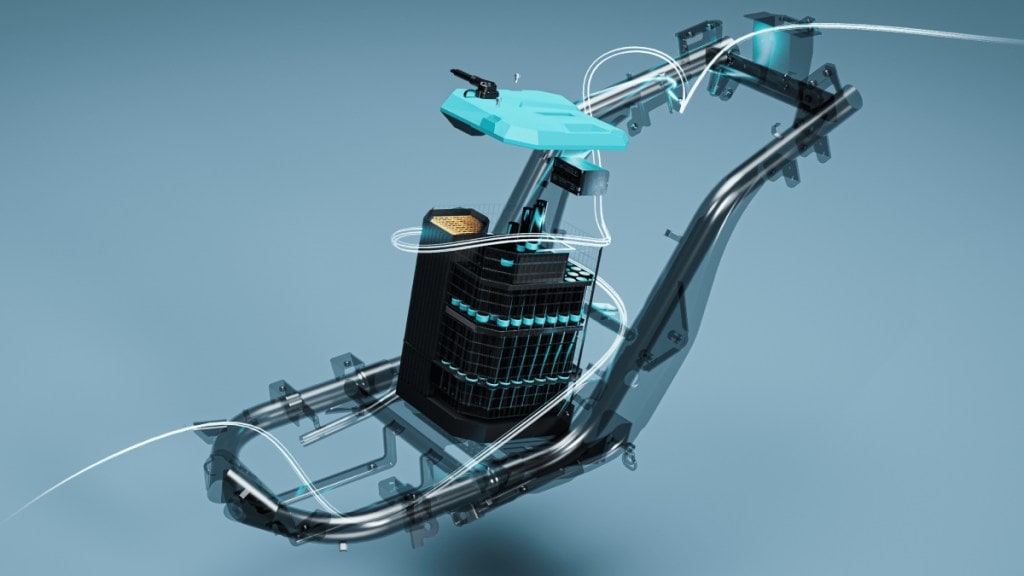By Ram Rajappa
As the global pursuit of sustainability intensifies, the shift from fossil fuels to clean and emissions-free energy sources has gained paramount importance. At the heart of this transformative journey lies a crucial player: batteries. Batteries are emerging as a vital storage solution, revolutionising the pursuit of a more sustainable and environmentally friendly future by facilitating the energy transition.
Lithium-ion batteries have emerged as the go-to choice for powering many devices, from mobile phones to electric vehicles to drones. These innovative battery technologies serve as powerful tools to decarbonise transport and energy sectors and play a pivotal role in combating climate change.
While the battery industry has made significant strides, it is still nascent. As we witness the ubiquitous use of batteries in our everyday lives, ranging from toys to cars, their potential goes beyond powering small gadgets. Large-scale batteries now hold an increasingly significant role in providing reliable electric power sourced from renewable energy, allowing nations like India to reduce their reliance on fossil fuels.
In the context of India’s environmental commitments, the nation has taken significant strides towards a greener future. In 2021, India announced an ambitious five-point action plan to achieve carbon neutrality by 2070 and reduce emissions to 50% by 2030. This pledge was made at the prestigious Conference of the Parties (COP) 26 climate summit in Glasgow, where India also called upon developed nations to fulfil their promise of climate financing.
Powering further optimism for the future of batteries, a recent market research report published by Sheer Analytics and Insights projects remarkable growth for ‘The Global Advanced Battery Market’, anticipating a CAGR of 7.4% from 2020 to 2030. This report signals a bright outlook for the impact of battery technology on the clean energy transition.
Batteries: essential for India’s energy transition
Batteries are vital in facilitating India’s energy transition towards a renewable-powered grid. With renewable energy sources like solar panels and wind turbines being dependent on specific conditions for power generation, batteries offer a solution to address the intermittency and variability of these sources. Renewable energy production fluctuates based on factors like sunlight availability and wind strength. Batteries enable the storage of excess energy generated during favourable conditions, which can then be released onto the grid when there is high demand or renewable sources do not produce sufficient electricity.
The urgency to address climate change has spurred the quest for environmentally friendly solutions, including advanced batteries. Compared to traditional lead-acid batteries, advanced batteries offer lower greenhouse gas emissions and reduce reliance on fossil fuels, contributing to a more sustainable energy ecosystem.
Driving the electric vehicle revolution
The increasing adoption of electric vehicles (EVs) has been a critical driver for the growth of the advanced battery market. As governments worldwide encourage EV adoption through incentives and stricter emission regulations, automakers seek advanced battery solutions to extend the driving range of EVs and reduce charging times. Advanced batteries have become indispensable components, propelling the EV revolution and paving the way for a greener future in transportation.
Emergence of advanced battery technology
The emergence of advanced battery technology has transformed the landscape of energy storage. These batteries incorporate innovative materials and designs, resulting in more efficient energy storage and release than conventional batteries. Examples of advanced battery types include lithium-ion batteries, lithium-sulphur batteries, solid-state batteries, and flow batteries. They offer higher energy density, faster charging capabilities, and improved safety profiles, making them versatile and well-suited for various applications.
Technological innovation and investment
The rapid growth of the advanced battery market can be attributed to relentless technological advancements. Extensive research and development efforts have resulted in breakthroughs in battery chemistry, leading to higher energy densities and a longer battery lifespan. Moreover, substantial investments from governments, private sector players, and venture capitalists have accelerated battery innovation, making advanced batteries more accessible and cost-effective.
The future of the advanced battery market looks promising, with increasing demand from the automotive, energy storage, and electronics sectors. From enabling the integration of renewable energy into the grid to powering the electric vehicle revolution, batteries are transforming the way we generate, store, and consume energy.
As technology advances and investment pours into the battery industry, we can expect even more significant innovations that will reshape our energy landscape and accelerate the transition to a cleaner, more sustainable future. As the pursuit of sustainable energy continues, advanced batteries will undoubtedly lead the transition to a cleaner, more efficient, and greener world, opening boundless possibilities for the future. The journey has just begun, and the battery industry holds the key to a world free from the shackles of fossil fuels, inspiring a brighter and cleaner tomorrow.
The author is the CTO, Greaves Electric Mobility.
Disclaimer: The views and opinions expressed in this article are solely those of the original author. These views and opinions do not represent those of The Indian Express Group or its employees.



















